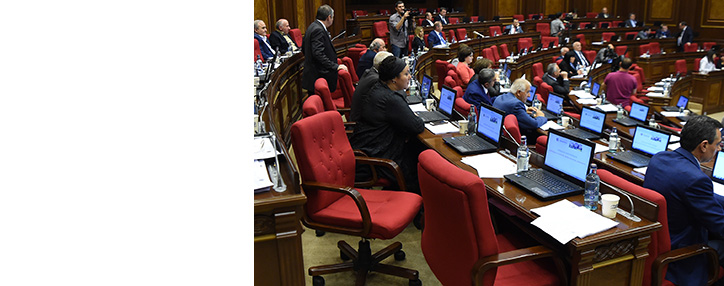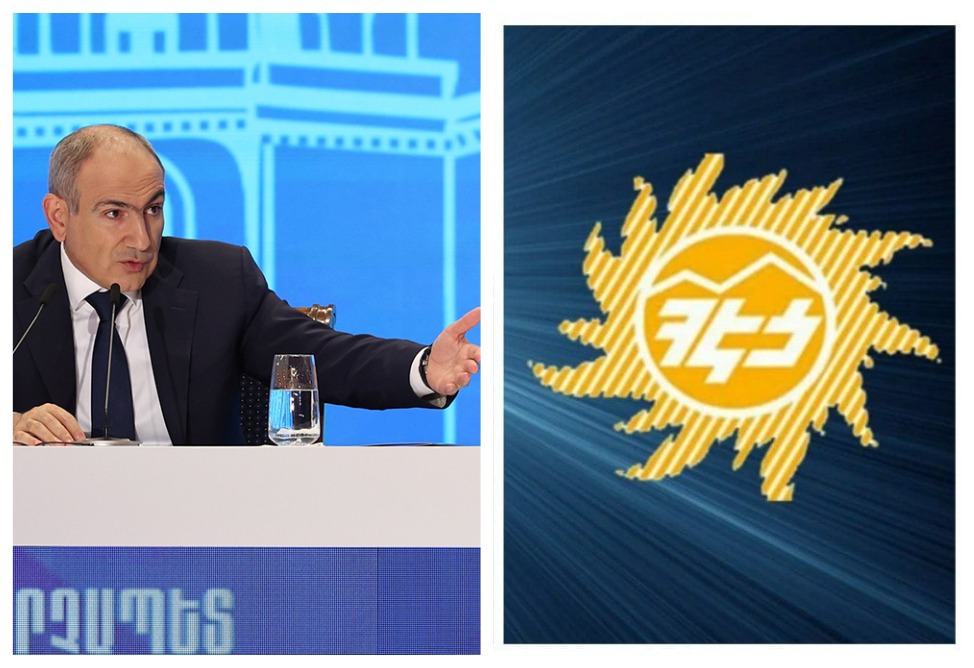Armenian parliament adopts new election law
25.05.2016,
15:34
Armenia’s parliament has passed today in the third and final reading a new Electoral Code. It was endorsed by 102 MPs; 17 lawmakers voted against it and three abstained.

YEREVAN, May 25. /ARKA/. Armenia’s parliament has passed today in the third and final reading a new Electoral Code. It was endorsed by 102 MPs; 17 lawmakers voted against it and three abstained. According to parliament regulations, a bill is pushed through if it is backed by 3/5 of votes. The Armenian parliament has 131 deputies.
The new Electoral Code was adopted ahead of the next parliamentary elections slated for 2017, which are going to be the first national elections after Armenia’s transition from the so-called semi-presidential form of governance to parliamentary republic.
Addressing the legislature today, the chief of government staff Davit Harutyunyan said all the proposals, which ere submitted after the deadline will also be discussed and if a consensus is reached they would be passed as amendments to the law.
Earlier Armenia’s government, parliamentary opposition parties and civil society representatives had failed to reach an agreement on the new Electoral Code. The opposition and civic groups sought five safeguards against vote rigging, including post-election publication of the names of those voters who went to the polls and cast ballots to would preclude multiple voting by government loyalists. The proposed measure was rejected by the governing Republican Party of Armenia (HHK) on grounds that it would breach the secrecy of ballots.
Levon Zurabyan from the oppositional Armenian National Congress (HAK) said today that HAK parliament members would vote against the law, but with the caveat that work to reach consensus would continue.
According to David Harutyunyan, the new Electoral Code provides for mechanisms which allow to avoid the most common forms of fraud reported in recent years’ Armenian elections such as ballot stuffing, multiple voting, and the use of so-called "carousel."
The new law says also that mayors of the second and third largest towns of Gyumri and Vanadzor will be elected not through direct vote, but by their Councils of Elders, as is the case in the capital Yerevan. The new parliament will have MPs elected only under the proportional system and their number will be cut to 101.
Each party or party alliance should introduce a single national electoral list of candidates. The Central Election Commission is to be elected by the parliament.-0-
The new Electoral Code was adopted ahead of the next parliamentary elections slated for 2017, which are going to be the first national elections after Armenia’s transition from the so-called semi-presidential form of governance to parliamentary republic.
Addressing the legislature today, the chief of government staff Davit Harutyunyan said all the proposals, which ere submitted after the deadline will also be discussed and if a consensus is reached they would be passed as amendments to the law.
Earlier Armenia’s government, parliamentary opposition parties and civil society representatives had failed to reach an agreement on the new Electoral Code. The opposition and civic groups sought five safeguards against vote rigging, including post-election publication of the names of those voters who went to the polls and cast ballots to would preclude multiple voting by government loyalists. The proposed measure was rejected by the governing Republican Party of Armenia (HHK) on grounds that it would breach the secrecy of ballots.
Levon Zurabyan from the oppositional Armenian National Congress (HAK) said today that HAK parliament members would vote against the law, but with the caveat that work to reach consensus would continue.
According to David Harutyunyan, the new Electoral Code provides for mechanisms which allow to avoid the most common forms of fraud reported in recent years’ Armenian elections such as ballot stuffing, multiple voting, and the use of so-called "carousel."
The new law says also that mayors of the second and third largest towns of Gyumri and Vanadzor will be elected not through direct vote, but by their Councils of Elders, as is the case in the capital Yerevan. The new parliament will have MPs elected only under the proportional system and their number will be cut to 101.
Each party or party alliance should introduce a single national electoral list of candidates. The Central Election Commission is to be elected by the parliament.-0-



